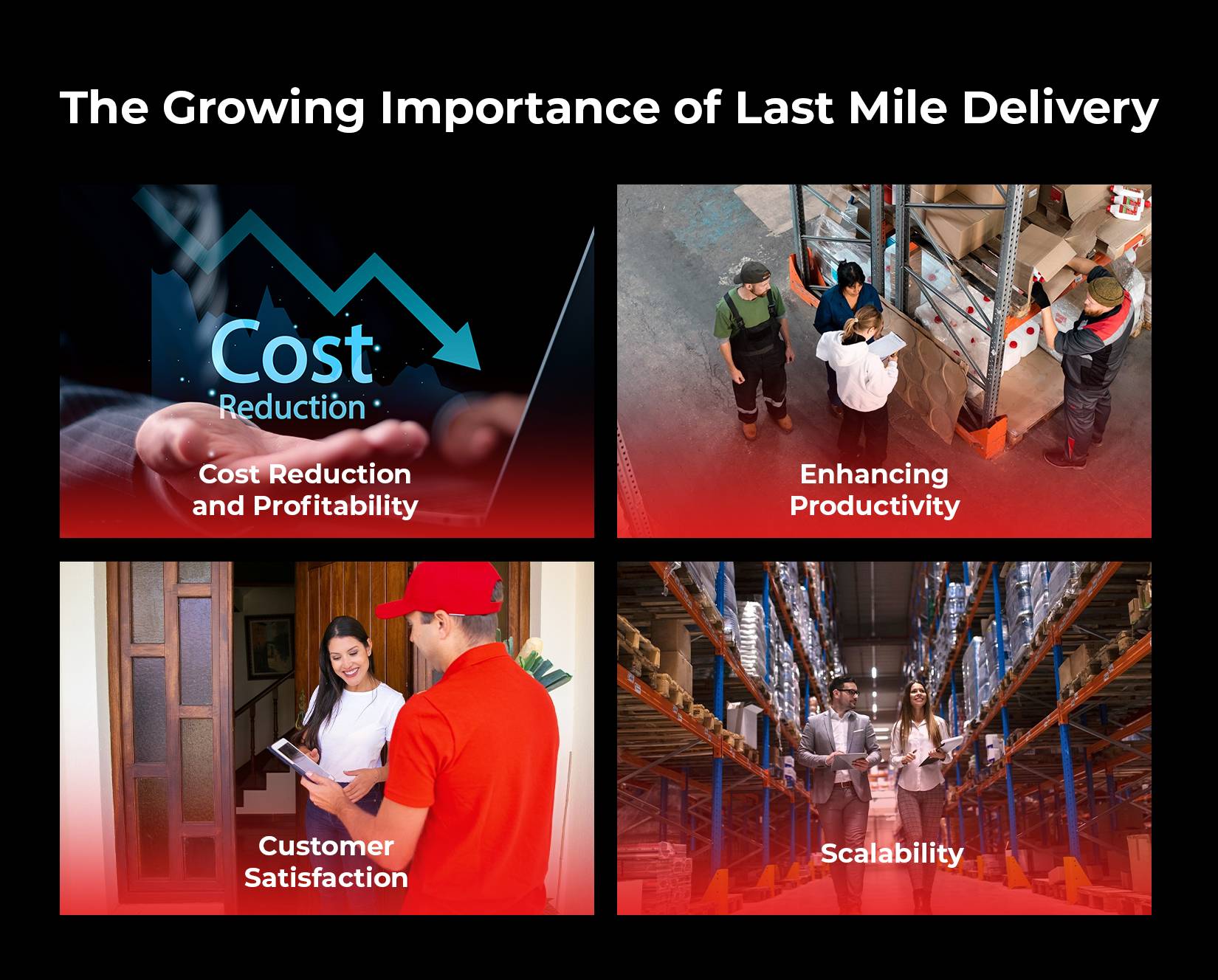In the rapidly evolving logistics landscape, last mile delivery is a critical aspect of the supply chain. Companies increasingly seek advanced solutions to streamline this process, ensuring timely deliveries while minimizing costs. Implementing Last Mile Delivery Software has become a strategic investment for businesses aiming to enhance operational efficiency, customer satisfaction, and profitability. This blog explores the return on investment (ROI) of adopting such software, focusing on its financial and operational benefits.
The Growing Importance of Last Mile Delivery

Last mile delivery, the final step in the delivery process, is crucial for businesses, especially in e-commerce. According to a study by Capgemini, the last mile accounts for nearly 41% of total supply chain costs. With consumers demanding faster and more accurate deliveries, the pressure on businesses to optimize this stage is immense. This is where Last Mile Delivery Solution comes into play.
Cost Reduction and Profitability:
One of the most significant advantages of implementing advanced Last Mile Delivery Software is cost reduction. The software enables businesses to optimize routes, reducing fuel consumption and vehicle wear and tear. By minimizing unnecessary mileage, companies can save on operational costs. A report by McKinsey & Company suggests that route optimization can lead to cost savings of up to 15%.
Moreover, the software provides real-time data on delivery operations, allowing businesses to make informed decisions. This level of insight helps in identifying inefficiencies, further driving down costs. When businesses can lower their delivery expenses, they see a direct impact on profitability, making the ROI on the software implementation highly favorable.
Enhancing Productivity:
Operational efficiency is another key area where Last Mile Delivery Software delivers substantial ROI. The software automates various aspects of the delivery process, from route planning to tracking deliveries. This automation reduces manual errors, ensures timely deliveries, and improves overall productivity.
For instance, businesses can leverage the software to allocate deliveries to the most efficient routes automatically. This not only speeds up the delivery process but also maximizes the utilization of available resources. According to a study by Gartner, companies using advanced delivery software report a 20% increase in delivery efficiency.
Additionally, the software’s real-time tracking feature enhances visibility across the delivery chain. Businesses can monitor the status of deliveries, anticipate delays, and communicate effectively with customers. This transparency is crucial in building customer trust and satisfaction, which are essential for long-term profitability.
Customer Satisfaction:
In today’s competitive market, customer satisfaction is paramount. Advanced Last Mile Delivery Software Management plays a crucial role in meeting customer expectations. The software’s ability to provide accurate delivery windows and real-time updates significantly enhances the customer experience.
When customers are informed about their delivery status, they are more likely to remain satisfied, even if there are delays. A study by MetaPack revealed that 88% of consumers would abandon a retailer after a poor delivery experience. Therefore, investing in Best Last Mile Delivery Software is not just about improving internal operations; it’s also about retaining customers and fostering loyalty.
Happy customers are more likely to return, leading to repeat business and increased revenue. The long-term ROI of investing in such software, therefore, extends beyond immediate cost savings to include enhanced customer retention and loyalty.
Scalability:
As businesses grow, so do their logistical challenges. Advanced Last Mile Delivery Software Management solutions are designed to scale with business needs. Whether a company is handling a few deliveries a day or thousands, the software can adapt to changing demands without compromising on efficiency.
This scalability ensures that businesses are not constantly investing in new systems as they grow, leading to long-term cost savings. Moreover, scalable solutions allow companies to explore new markets and expand their delivery capabilities, further increasing ROI.
Measuring ROI: A Comprehensive Approach
Measuring the ROI of implementing the best last mile delivery software involves looking at several factors. Cost reduction, operational efficiency, customer satisfaction, and scalability are just the beginning. Businesses must also consider the long-term benefits, such as increased market share, enhanced brand reputation, and the ability to innovate.
By taking a comprehensive approach to ROI measurement, businesses can gain a clear understanding of how the software impacts their bottom line. A Deloitte study found that companies that actively measure and manage ROI on logistics software see a 30% higher return on their investment compared to those that do not.
Conclusion
Investing in advanced Last Mile Delivery Software is not just a necessity in today’s logistics environment; it’s a strategic move that can yield significant returns. From reducing costs to enhancing operational efficiency and improving customer satisfaction, the benefits of such software are clear. Businesses that adopt LogiNext’s Last Mile Delivery Software can expect not only to meet current delivery challenges but also to position themselves for future growth. The ROI of implementing these solutions is not just financial; it’s a comprehensive boost to a company’s competitiveness and long-term success. Book a demo with us by clicking on the red button below.
11






















